Company details for:
Technical Alarm Systems Ltd
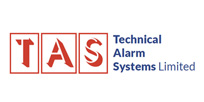
Unit 209,
Solent Business Centre,
343 Millbrook Road West,
Southampton,
Hampshire,
SO15 0HW,
United Kingdom
Quick Links:
Products
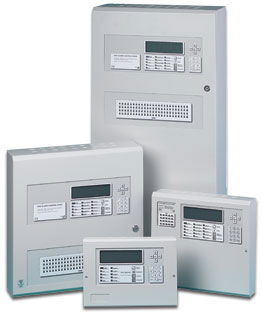
Fire Alarms
Fire alarm systems are a strongly recommended commodity − we believe no premises should be without the safety a fire alarm offers. Listed below are the different types of alarm systems available. Please feel free to discuss your needs with one of our trained specialist advisers.
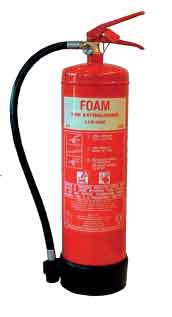
Fire Extinguishers
Water − Used for wood, cloth, paper, plastics, coal and fires involving solids. This type of extinguisher works by cooling burning material. NOT FOR USE ON ELECTRICAL FIRES.
Foam − Used for wood, cloth, paper, plastics, coal and fires involving solids, liquids such as grease, fats, oil, paint or petrol. This type of extinguisher works by forming a fire extinguishing film on the surface of a burning liquid. It has a cooling action with a wider extinguishing application than water on solid combustible materials.
Dry Powder − Used for liquids such as grease, fats, oil, paint and petrol. This type of extinguisher works by knocking down flames.
CO2 − Used for liquids such as grease, fats, oil paint and petrol. This type of extinguisher works by vaporising liquid gas which smothers the flames by displacing oxygen in the air.
Extinguishant Systems − Fixed systems designed for specific areas such as computer rooms or special equipment.
Fire Blankets − For fires involving both solids and liquids. This resource is particularly effective for small fires in clothing and for chip and fat pan fires provided the blanket completely covers the fire. This type of extinguisher works by smothering the fire.
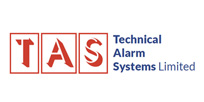
Fire Risk Assessments
The RRFSO states that businesses are required to complete a written Fire Risk Assessment of their premises if they have 5 or more employees. The RRFSO places the responsibility on the ‘responsible’ person for the business and the order is enforced by the enforcing authority which is normally your local Fire and Rescue Service. However there are other enforcing authorities such as the Health & Safety Executive, Ministry of Defence and your Local Authority.
It is required that the ‘responsible’ person (employers, owners and occupiers) carries out or appoints a competent person to carry out the Fire Risk Assessment.
Technical Alarm Systems Ltd (TAS) can provide this service. We will conduct a complete survey of your premises and issue you with a suitable and sufficient report.
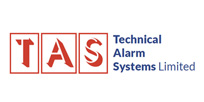
Voice Alarm Systems
Voice Alarm/Public Address − Uses microphones, amplifiers and speakers to deliver instructions or announcements to large groups of people. This could be office staff, customers within a shop, information announcements in leisure centres, and more. VA/PA systems can easily be installed as a simple stand-alone system or can be integrated within CCTV, Access Control or Fire Alarm Systems. VA/PA systems are varied in their vast range of use, from a simple system within a veterinary surgery to a larger, more complex system in a sports stadium.
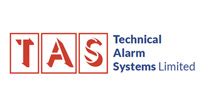
Self Contained Emergency Lighting
Automatic Self Testing of Self Contained Emergency Lighting
TAS Self Test enables owners of premises to comply with testing regulations in a simple and cost effective manner. The TAS Self Test System continuously monitors the charging of the battery and the condition of the lamp.
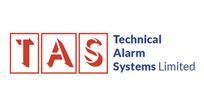
UPS & Central Battery Emergency Lighting
Power outages can cause real problems for businesses. Even minor power fluctuations can cause computers to freeze or shut down, resulting in lost time and data. As most businesses store information on a computer or file server it is advisable that there is a system in place to prevent data loss. A UPS system can offer peace of mind.
There are two different types of UPS device: off-line UPS and on-line UPS.
Off-line UPS
An Off-line UPS remains idle until a power failure occurs, and then switches from utility power to its own power using a Central Battery System in which the batteries and charger are housed in one location together with monitoring of the mains supply and, if required, sub-circuits. Can supply total or part loads as required.
On-line UPS
On-line UPS continuously powers the protected load from its batteries, while simultaneously replenishing the reserves from the AC power using a static inverter which runs conventional mains lighting at full brightness during both normal conditions and power outage situations. Does not require installation of special fittings.
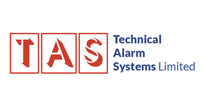
Nurse Call Systems
There are several types of call systems that can be used:
Conventional − A standard Nurse Call allows residents to call staff through hardwired call buttons with pull cords, emergency push buttons or emergency pull cords. Staff are notified, identifying the type and location of the call. Installation of this system is easy and quick.
Radio − The 1200 Series Radio Nurse Call System is widely used. A wireless system offers all the functions of a conventional wired system, but with no wiring there is almost no disruption to the premises. Can easily be added to or repositioned without affecting the operation of the system.
more information »
Addressable − This type of Nurse Call is tailored to suit your facilities’ specific requirements. Different day/night or call divert arrangements can be set to suit your needs.
Access and CCTV (including Door monitoring) − Allows carers to be aware of each resident or patient’s whereabouts at any given time.
Panic Alarm − various systems are available depending on requirements.
Call logging and data paging facilities are also available.
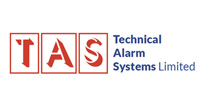
Access Control
We can design and install a bespoke system to match the needs of your organisation.
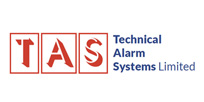
Disability Discrimination Act Compliance
Loop Induction − An induction loop system helps people with hearing difficulties. Users with a hearing aid or loop listener hear sounds more clearly because it reduces or cuts out background noise. Induction Loop systems are easy to install and offer top quality sound. Places that are required to have a loop induction system include public utility companies, leisure centres, bus and train stations, shops, hairdressers, hotels, restaurants, cinemas, pubs, hospitals, clinics, courts and places of worship.
Assisted Toilet Alarms − These allow a person to call for assistance when required. There are two types of alarm:
Wired − Wired systems are designed to provide a reliable and easy to use method of calling for assistance.
Radio − This system is easy to install, with no wiring required. A pull cord unit and a remote indicator are both operated by standalone battery units.
Alarm kit (367Kb)
Data sheet (371Kb)
Alarm System (460Kb)
Refuge Alarm − A communication system designed especially for use within a building with Refuge Areas, which are specifically designed areas for those who cannot use fire escapes to remain safely until help arrives. A Refuge Alarm alerts the fire officer (or relevant person) to the presence of a person with disabilities and allows contact with the refuge areas throughout an emergency.
Full product and price lists are available on request.
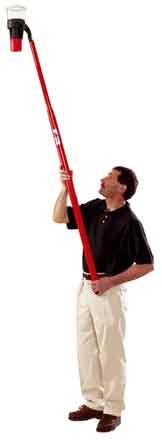
Maintenance
Technical Alarm Systems not only supply systems, but also offers maintenance and servicing on systems that are already in place. We can take over from an existing contract with another company and can offer a competitive price for our services. We are familiar with the majority of manufacturers and are confident that we can help.
Reasons to have a regular maintenance and servicing contract include:
By legislation, RRO (Regulatory Reform Order 2005), fire alarms must be regularly serviced and maintained
Prevention of expensive problems in case of failure
Testing of correct system functionality
24 hour 7 days a week call-out facility to our contract customers, which offers peace of mind and assurance
We can check other systems in the building, even if we didn’t supply them
Engineers are familiar with the systems
About us
Here at Technical Alarm Systems, we supply a vast array of fire alarm systems, security systems and safety measures that have been highly praised and recommended by our loyal customer base. Whether our clients are looking for CCTV units, nurse call systems, fire extinguishing equipment or emergency lighting, we as a company are guaranteed to have the perfect solution. Our servicing team are fully equipped to deal with the design, installation and maintenance of any security system we provide, as well as offering expert advice and support.
We at Technical Alarm Systems are proud to have an impressive product range that has exceeded the expectations of customers for over twenty years. Some of these products and services include;
- Fire Alarms
- Fire Extinguishers
- Fire Risk Assessments
- Voice Alarm Systems
- Self-Contained Emergency Lighting
- UPS & Central Battery Emergency Lighting
- Nurse Call Systems
- Access Control
- Disability Discrimination Act Compliance
Over the years, we as a company have developed excellent solutions that have benefitted customers across the UK. Our high-end alarm systems are easily the best on the market and cannot be found anywhere else. We offer a consultancy service to all clients to help specify alarm systems and choose the best installation for their premises. All engineers we hire are fully-qualified and knowledgeable when it comes to installation and maintenance, and are all familiar with our systems. We have a full product and price list available upon request.
Images
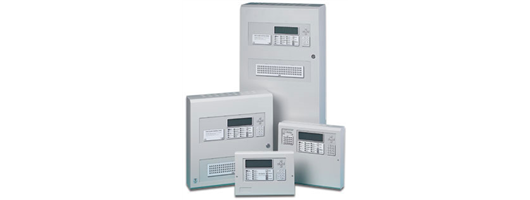








Articles / Press Releases
Brochures
Trade Associations




